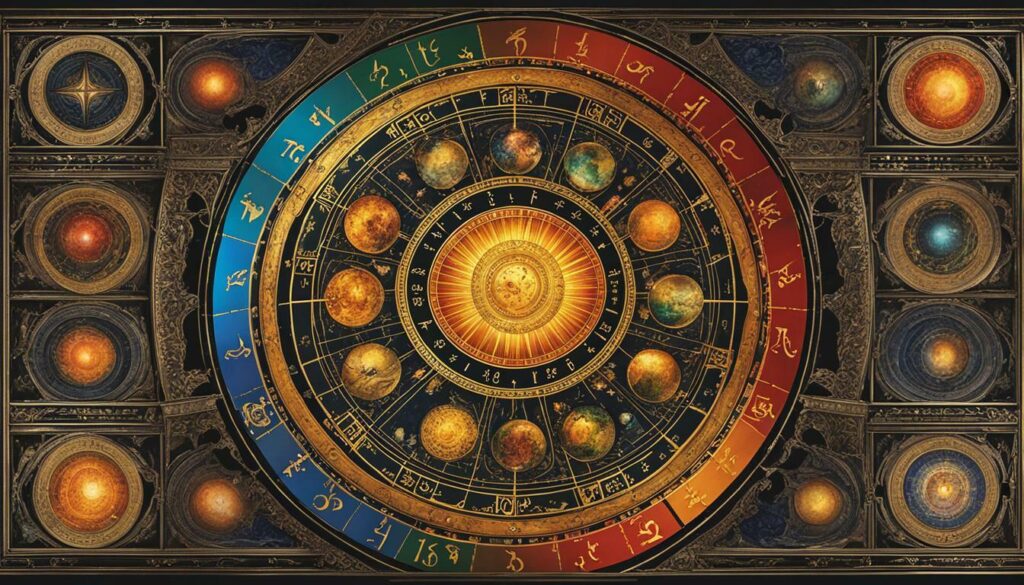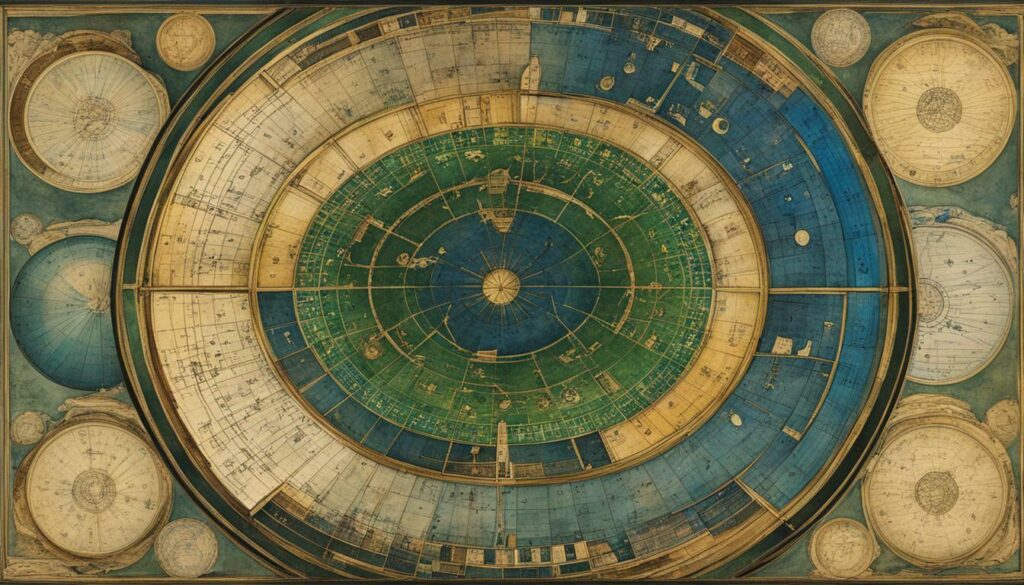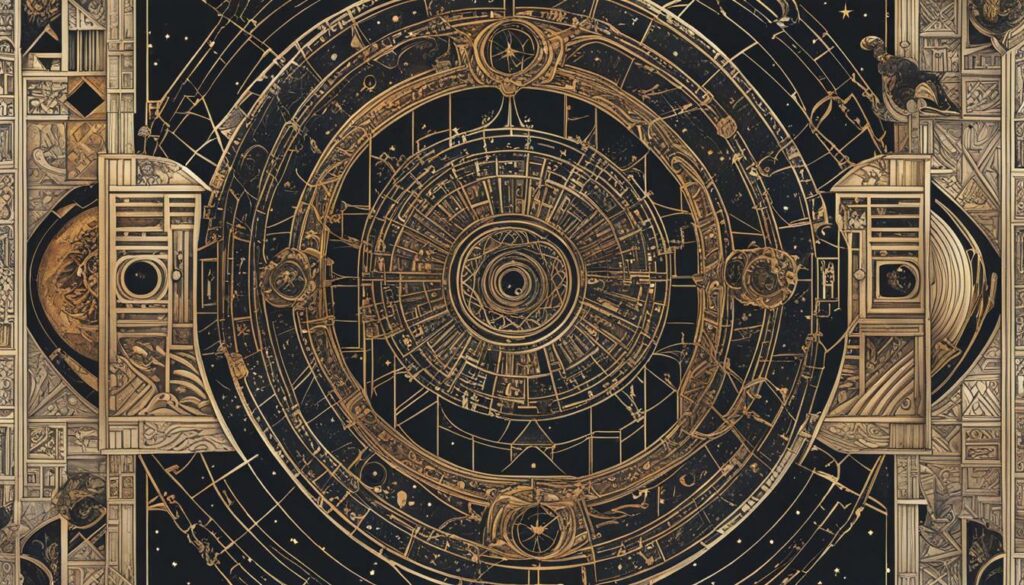Which House System Is Most Accurate in Astrology
When it comes to determining which house system is the most accurate in astrology, there is no definitive answer. It ultimately depends on personal preference and comfort. Some popular house systems include Placidus, Koch, Equal, and Whole Sign. Placidus is the most commonly used in Western astrology, while Whole Sign is the oldest method. The Porphyry system is also gaining popularity. Each system has its own advantages and disadvantages. It is recommended to experiment and find the system that resonates with you the most. The Placidus system is often favored due to its accuracy, but it may not be suitable for high latitudes. Ultimately, astrology is a personal journey and it is important to use a house system that feels right for you.
- There is no definitive answer to which house system is the most accurate in astrology.
- Popular house systems include Placidus, Koch, Equal, Whole Sign, and Porphyry.
- Each house system has its own advantages and disadvantages.
- Experimentation is recommended to find the house system that resonates with you.
- Astrology is a personal journey, and it’s crucial to use a house system that feels right for you.
Understanding House Systems in Astrology
When it comes to determining which house system is the most accurate in astrology, there is no definitive answer. It ultimately depends on personal preference and comfort. Some popular house systems include Placidus, Koch, Equal, and Whole Sign. Placidus is the most commonly used in Western astrology, while Whole Sign is the oldest method. The Porphyry system is also gaining popularity. Each system has its own advantages and disadvantages.
In astrology, house systems are used to divide the birth chart into specific sections, or “houses,” which represent different areas of life. These houses have a significant influence on the interpretation of planetary placements and aspects. The accuracy of a house system is determined by how effectively it reflects an individual’s unique astrological profile.
Comparing House Systems for Accuracy
When comparing house systems for accuracy, it’s essential to consider factors such as the system’s historical significance, ease of use, and cultural relevance. Placidus, for example, is favored by many astrologers due to its accuracy in interpreting the midheaven and ascendant points. However, it may not be suitable for high latitudes, as it can result in distorted house sizes. Whole Sign, on the other hand, evenly distributes the signs across the houses, providing a holistic approach to astrology.
- Placidus: The most commonly used system in Western astrology, known for its accuracy in interpreting specific points in the birth chart.
- Koch: A popular system with a controversial reputation, often chosen for its emphasis on the intercepted houses.
- Equal: This system divides the chart into equal segments of 30 degrees, offering a balanced approach to house interpretation.
- Whole Sign: The oldest method, where each house corresponds to an entire sign, providing a simple and straightforward approach.
- Porphyry: A lesser-known system gaining popularity, Porphyry divides the houses using mathematical calculations based on the ascendant and midheaven.
Exploring and experimenting with different house systems is essential to find the one that resonates with you the most. Personal preference and intuition play a significant role in astrology, allowing individuals to connect with their birth chart on a deeper level. While some astrologers may have their preferences, it’s crucial to trust your own intuition when selecting a house system. After all, astrology is a personal journey.

When it comes to determining which house system is the most accurate in astrology, there is no definitive answer. It ultimately depends on personal preference and comfort. There are several popular house systems used in astrology, including Placidus, Koch, Equal, and Whole Sign.
Placidus is the most commonly used house system in Western astrology. It is favored for its accuracy and has been widely adopted. However, it may not be suitable for high latitudes, as it can distort house cusps in extreme latitudes.
The Whole Sign system is the oldest method of determining house placements. It divides the celestial sphere into twelve equal sections of thirty degrees each, with each house corresponding to one zodiac sign. This simple and straightforward approach is gaining popularity for its clarity and ease of use.
Another house system that is gaining recognition is the Porphyry system. It divides the celestial sphere using a quadrant-based approach, with each quadrant having three house cusps. This system offers a balanced distribution of houses and is favored by some astrologers for its accuracy.
Ultimately, the accuracy of a house system depends on individual preferences and the astrologer’s interpretation. It is recommended to experiment with different systems and find the one that resonates with you the most. Astrology is a deeply personal journey, and using a house system that feels right for you enhances the accuracy and effectiveness of your readings.

- Placidus: Widely used and favored for its accuracy but may be less suitable for high latitudes.
- Whole Sign: The oldest method, known for its clarity and simplicity.
- Porphyry: Gaining popularity for its balanced distribution of houses.
- Koch: Controversial and often debated for its accuracy.
- Equal: Offers equal house divisions, but its accuracy may vary depending on the individual chart.
It’s important to remember that astrology is a dynamic field, and different astrologers may have different opinions and preferences when it comes to house systems. Trusting your own intuition and exploring different systems will allow you to find the house system that aligns best with your understanding and interpretation of astrology.
Placidus System: A Widely Used Choice
When it comes to astrology house systems, the Placidus system is a popular and widely used choice. Many astrologers believe that the Placidus system provides accurate and insightful interpretations of a person’s natal chart. However, it’s important to note that there is ongoing debate about the accuracy of house systems in astrology.
The Placidus system divides the astrological chart into unequal house sizes, based on the degree of the Ascendant and Midheaven. This system takes into account the curvature of the Earth and aims to accurately represent the varying lengths of time that signs and planets spend in different houses. This attention to detail is one of the reasons why the Placidus system is favored by many astrologers.
Advocates of the Placidus system appreciate its ability to highlight the angular houses, which are believed to have significant importance in a person’s life. The angular houses include the first, fourth, seventh, and tenth houses, and they are associated with personal identity, home and family, relationships, and career, respectively. The Placidus system places a strong emphasis on these areas of life, providing detailed insights and predictions.
Advantages of the Placidus System:
- Accurate representation of angular houses
- Provides detailed insights into key areas of life
- Widely used and recognized in Western astrology
Disadvantages of the Placidus System:
- Not suitable for high latitudes
- Unequal house sizes can cause confusion for beginners
- Interpretations may vary depending on the astrologer
While the Placidus system is widely used and considered accurate by many astrologers, it’s important to remember that astrology is a personal journey. Different house systems may resonate differently with individuals, and it is recommended to experiment and explore various systems to find the one that feels right for you. Trust your intuition and use the system that aligns with your beliefs and preferences.

When it comes to determining which house system is the most accurate in astrology, there is no definitive answer. It ultimately depends on personal preference and comfort. Some popular house systems include Placidus, Koch, Equal, and Whole Sign. Placidus is the most commonly used in Western astrology, while Whole Sign is the oldest method. The Porphyry system is also gaining popularity. Each system has its own advantages and disadvantages.
The Whole Sign system, as the name suggests, assigns each house to a whole sign of the zodiac. This method is believed to provide a clear and straightforward interpretation of house placements. One of the advantages of the Whole Sign system is its simplicity, making it accessible to beginners. It also aligns the house cusps with the ascendant, which some astrologers find to be more intuitive.
However, there are also potential drawbacks to the Whole Sign system. One criticism is that it does not take into account the varying sizes of houses. Another concern is that the Whole Sign system may not accurately reflect the divisions of the sky at higher latitudes. This means that for individuals living in extreme latitudes, the Whole Sign system may not be as accurate as other house systems.
It is important to note that accuracy is subjective and can vary for each individual. It is recommended to experiment with different house systems and find the one that resonates with you the most. The Placidus system is often favored due to its accuracy, but it may not be suitable for high latitudes. Ultimately, astrology is a personal journey and it is important to use a house system that feels right for you.

When it comes to astrology, there are various house systems used to determine the placement of planets and other celestial bodies. One of the popular systems is the Koch system, known for its controversial nature.
The Koch system divides the houses using the “Equal House” method, which means each house is exactly 30 degrees wide regardless of the latitude. This system takes into consideration the Ascendant, the point where the eastern horizon intersects with the ecliptic at the moment of birth. The Koch system’s focus on the Ascendant makes it ideal for analyzing personal identity and self-development.
However, the accuracy of the Koch system is a subject of debate among astrologers. Some believe that it provides precise and detailed insights into an individual’s life, while others argue that it may not accurately represent the actual positions of the planets at the time of birth. The controversy surrounding the Koch system stems from its reliance on the Ascendant and the potential for discrepancies in determining its exact location.
Despite the debate, the Koch system continues to be widely used and respected among astrologers. It offers a unique perspective and interpretation of an individual’s chart, focusing on the development of the self and personal identity. As with any house system, it is important to consider the advantages and disadvantages of the Koch system and determine if it resonates with your own understanding of astrology.

Experimentation and exploration are key when it comes to astrology. It is recommended to try out different house systems, including the Koch system, to find the one that feels right for you. Each system has its own strengths and weaknesses, and what may work for one person may not work for another. Trust your intuition and personal experience to guide you in selecting the house system that best aligns with your understanding and interpretation of astrology.
Other House Systems: Porphyry, Topocentric, and More
When it comes to astrology house systems, there are more options to consider beyond the popular choices of Placidus, Koch, Equal, and Whole Sign. One such system gaining popularity is the Porphyry system.

Known for its simplicity and clarity, the Porphyry system divides the houses into equal segments based on the degree differences between the Ascendant and Midheaven. This system is especially favored by those seeking a balanced approach to house placements.
While the Porphyry system has its advantages, it’s important to note that its accuracy can vary depending on the individual and the specific chart being analyzed. Like any house system, it has its own set of strengths and weaknesses.
Advantages of the Porphyry House System:
- Simple and easy to calculate
- Provides a balanced distribution of house placements
- Offers a clear representation of the Ascendant and Midheaven
Disadvantages of the Porphyry House System:
- May not accurately reflect house cusps in certain cases
- Does not account for varying latitudes
- Not as widely recognized or utilized as systems like Placidus or Koch
It’s worth noting that there are even more house systems available, such as the Topocentric system, which takes into account the geographical location of the individual. Each system brings its own unique perspective to astrology and offers different interpretations of house placements.
In the end, the choice of which house system to use is a personal one. It’s recommended to experiment with different systems and see which one resonates with you the most. By exploring a variety of house systems, you can gain a deeper understanding of astrology and tailor your readings to align with your personal preferences.
Personal Preference in House System Selection
When it comes to selecting the best house system in astrology, personal preference plays a crucial role. With various popular systems like Placidus, Koch, Equal, and Whole Sign to choose from, it’s important to find the one that resonates with you.
Each house system has its own advantages and disadvantages. Placidus, for example, is widely used and known for its accuracy in Western astrology. However, it may not be the best choice for high latitudes.
On the other hand, the Whole Sign system, being the oldest method, brings its own unique strengths. It provides a simpler and more intuitive approach to house placements. The Porphyry system is also gaining popularity for its accuracy.
Experimentation and Exploration
To find the right house system for you, it’s recommended to experiment and explore different options. Try using each system and see how it aligns with your own astrology practice and intuition.
- Make note of how each system influences your interpretations and readings.
- Consider the advantages and disadvantages of each system.
- Take into account your own personal experiences and feelings when working with a particular system.
Remember, astrology is a personal journey. Trusting your own instincts and finding a house system that feels right for you is key to enhancing the accuracy and authenticity of your astrology practice.

When it comes to astrology, finding the right house system for accurate readings is a personal journey. It’s like trying on different outfits to see which one fits you best. So, don’t be afraid to experiment and explore different house systems to find the one that resonates with you.
Start by familiarizing yourself with popular house systems like Placidus, Koch, Equal, and Whole Sign. Each system has its own unique approach and methodology. Take some time to study and understand the advantages and disadvantages of each system. This will help you make an informed decision about which system to try first.
Exploring Different House Systems
Once you have a good understanding of the different house systems, it’s time to explore them in practice. Take your birth chart and calculate the house placements using one system at a time. Pay attention to how each system affects the interpretation of your chart and the accuracy of the predictions.
- Notice the differences in the house cusps and how they may alter the positioning of planets in different houses.
- Observe how each system emphasizes certain areas of your life and influences the overall interpretation of your chart.
- Take note of any patterns or themes that emerge based on the house system you’re using.
Remember, astrology is not an exact science, and different house systems can provide different insights and perspectives. It’s all about finding the system that feels right for you and resonates with your intuitive understanding of astrology.

So, don’t be afraid to experiment and explore. Try out different house systems, consult with experienced astrologers, and trust your own instincts. The more you engage in this personal exploration, the better you’ll understand which house system aligns with your unique astrology practice. Enjoy the journey!
Astrology as a Personal Journey
When it comes to astrology, I believe it is more than just a collection of charts and calculations. It is a deeply personal journey that allows us to explore ourselves, our potentials, and our purpose in life. As we delve into the fascinating world of astrology, we embark on a path of self-discovery and self-reflection.
Individual astrology practice is about finding what resonates with us and aligns with our unique experiences and beliefs. We each have our own preferences, and that includes the house system we choose to use. Whether it’s Placidus, Koch, or Whole Sign, the decision ultimately lies with us.
The Importance of Personalization in Astrology
Personalization in astrology is key to unlocking its true potential. It allows us to utilize the house system that feels right for us and brings greater accuracy to our readings. It’s like finding the perfect pair of shoes that fit comfortably and complement our individual style.
- Experimenting with different house systems is encouraged. It gives us the opportunity to explore their nuances, strengths, and weaknesses.
- By doing so, we can fine-tune our astrology practice and develop a deeper understanding of ourselves and others.
- When we personalize our approach to astrology, it becomes a powerful tool for self-reflection, growth, and embracing our unique journey.

Remember, astrology is not about finding a definitive answer or a one-size-fits-all solution. It is about embracing the individuality and complexity of our lives. So, as you explore the world of astrology, trust your intuition, experiment with different house systems, and create a practice that truly reflects who you are. After all, it is your personal journey that matters most.
No Definitive Answer
When it comes to determining which house system is the most accurate in astrology, there is no definitive answer. It ultimately depends on personal preference and comfort. Astrologers have different opinions and experiences with each system, making it challenging to declare one as the absolute best.
Some popular house systems include Placidus, Koch, Equal, and Whole Sign. The Placidus system is the most commonly used in Western astrology, known for its accuracy and versatility. However, it may not be suitable for high latitudes. On the other hand, the Whole Sign system is the oldest method, offering a straightforward approach to house placements.
The Porphyry system is also gaining popularity in recent years. It provides a unique perspective and has its own set of advantages and disadvantages. It’s important to note that accuracy can vary for each individual, so what works for one person may not work for another.
When choosing a house system, it is recommended to experiment and find the system that resonates with you the most. Trust your intuition and explore different systems to see which one feels right for your astrology practice. Remember, astrology is a deeply personal journey, and using a house system that aligns with your beliefs and experiences can enhance the accuracy of your readings.

Conclusion
When it comes to determining which house system is the most accurate in astrology, there is no definitive answer. It ultimately depends on personal preference and comfort. Some popular house systems include Placidus, Koch, Equal, and Whole Sign. Placidus is the most commonly used in Western astrology, while Whole Sign is the oldest method. The Porphyry system is also gaining popularity.
Each system has its own advantages and disadvantages. The Placidus system is often favored due to its accuracy, but it may not be suitable for high latitudes. Whole Sign, on the other hand, is considered more reliable for accurate readings across different latitudes.
It is recommended to experiment with different house systems to find the one that resonates with you the most. Take the time to explore the accuracy and nuances of each system and evaluate how it aligns with your personal astrology practice. Remember, astrology is a deeply personal journey, and using a house system that feels right for you is crucial for accurate and meaningful readings.
In conclusion, while there are popular house systems and discussions surrounding their accuracy, there is no absolute answer as to which one is the most accurate. Trust your intuition and rely on your personal experiences and preferences when selecting a house system. Embrace the exploration and experimentation in order to find the perfect fit for your astrology practice.
FAQ
Q: Which house system is the most accurate in astrology?
A: There is no definitive answer to this question as it depends on personal preference and comfort.
Q: What are some popular house systems in astrology?
A: Some popular house systems include Placidus, Koch, Equal, and Whole Sign.
Q: What is the most commonly used house system in Western astrology?
A: The Placidus system is the most commonly used house system in Western astrology.
Q: Which is the oldest method of determining house placements?
A: The Whole Sign system is the oldest method of determining house placements.
Q: What are the advantages and disadvantages of the Placidus system?
A: The Placidus system is often favored for its accuracy, but it may not be suitable for high latitudes.
Q: What are the advantages and disadvantages of the Whole Sign system?
A: The Whole Sign system has the advantage of simplicity and clarity, but it may not provide as much detail as other systems.
Q: What is the controversy surrounding the Koch system?
A: The Koch system is known for its controversial nature and may not be as widely accepted as other systems.
Q: Are there other house systems besides the popular ones mentioned?
A: Yes, there are lesser-known house systems such as the Porphyry system and the Topocentric system.
Q: How should I choose a house system?
A: It is recommended to experiment with different house systems and find the one that resonates with you personally.
Q: Is astrology a personal journey?
A: Yes, astrology is a deeply personal journey, and your individual experiences and preferences play a significant role.
Q: Is there a definitive answer to which house system is the most accurate?
A: No, there is no definitive answer as accuracy can vary for each individual. Trust your own intuition when selecting a house system.







